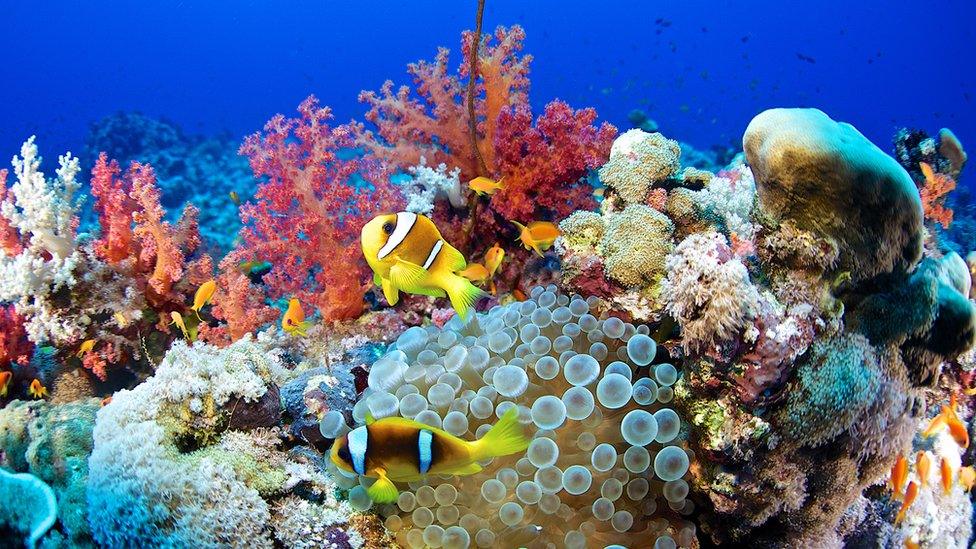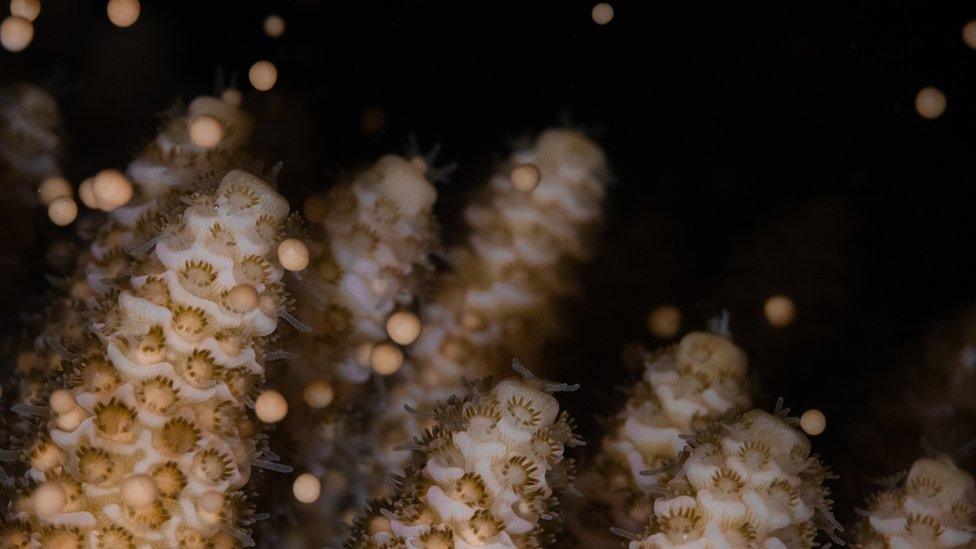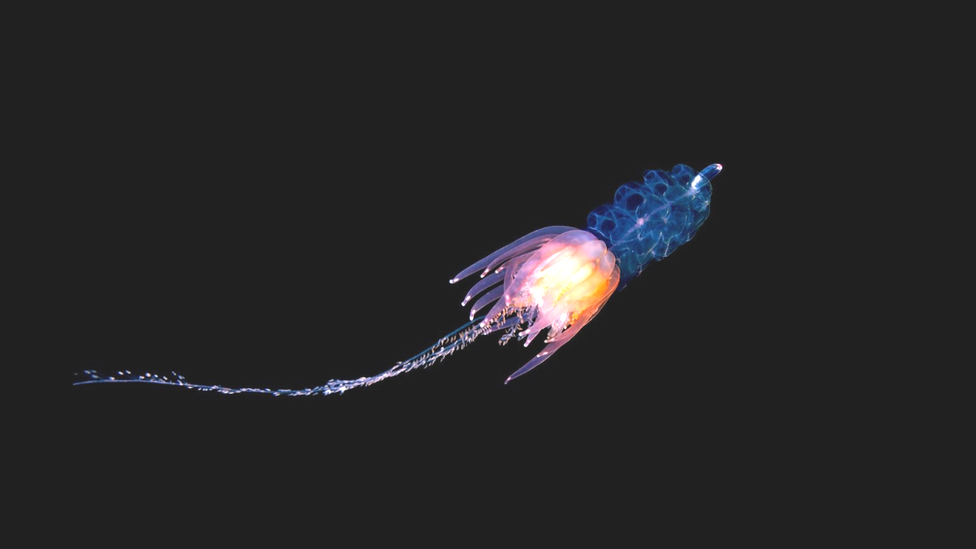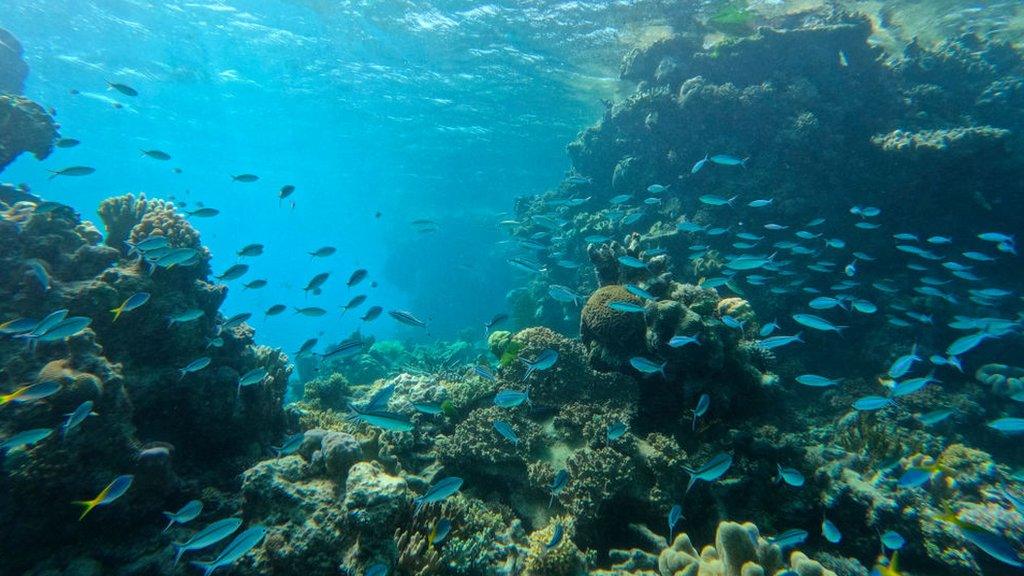Playing sounds underwater to damaged coral could help them thrive
- Published
- comments

This is what a healthy coral reef looks like - and it's very noisy
Coral reefs are home to around a quarter of all marine species but since the 1950s, over half of the world's coral reefs have died.
It's because of things like pollution, climate change and ocean acidification but a team of scientists working off the coast of the US Virgin Islands in the Caribbean hope they might have found a solution.
They've been testing whether playing sounds of a healthy coral under the water could help bring damaged coral reefs back to life.

Coral only spawns once a year, usually around the week of November's full moon. This produces coral larvae on the surface
A healthy coral reef makes a lot of noise and it sounds like a mixture of clicking, grunting and scratching under the water, because of all the wildlife that live there.
Coral spawns at the same time, forming larvae (baby coral) on the ocean's surface which are carried around by the current before eventually dropping down to the ocean floor.
They can travel for days until they find the right reef to settle on.
Researcher, published in the Royal Society Open Science journal, found that coral larvae were up to seven times more likely to settle at a damaged reef if healthy coral sounds were played, and doing this could help damaged reefs recover.
Prof Steve Simpson, marine biologist at the University of Bristol said to the Guardian newspaper: "Coral reefs are the first marine ecosystems we could lose to climate change, which means they are also the first we can save. If we can save reefs, we can save anything."
Why are coral reefs in danger?
Climate change: What is coral bleaching?
Scientists say humans are having a huge impact on the health of our oceans and climate change is the biggest threat to coral reefs.
A recent report found oceans have hit their hottest ever recorded temperature.
Oceans are extremely important in controlling Earth's temperature. They soak up heat, produce half of the earth's oxygen and drive weather patterns.
Coral bleaching happens when the water warms too much, causing corals to force out the colourful algae living in their tissues and then turn white. When coral dies there is nowhere for the marine life that live on and around it to feed and live.
But this new finding could provide hope for the recovery of our coral reefs.
- Published9 November 2023

- Published6 May 2023

- Published30 November 2022

